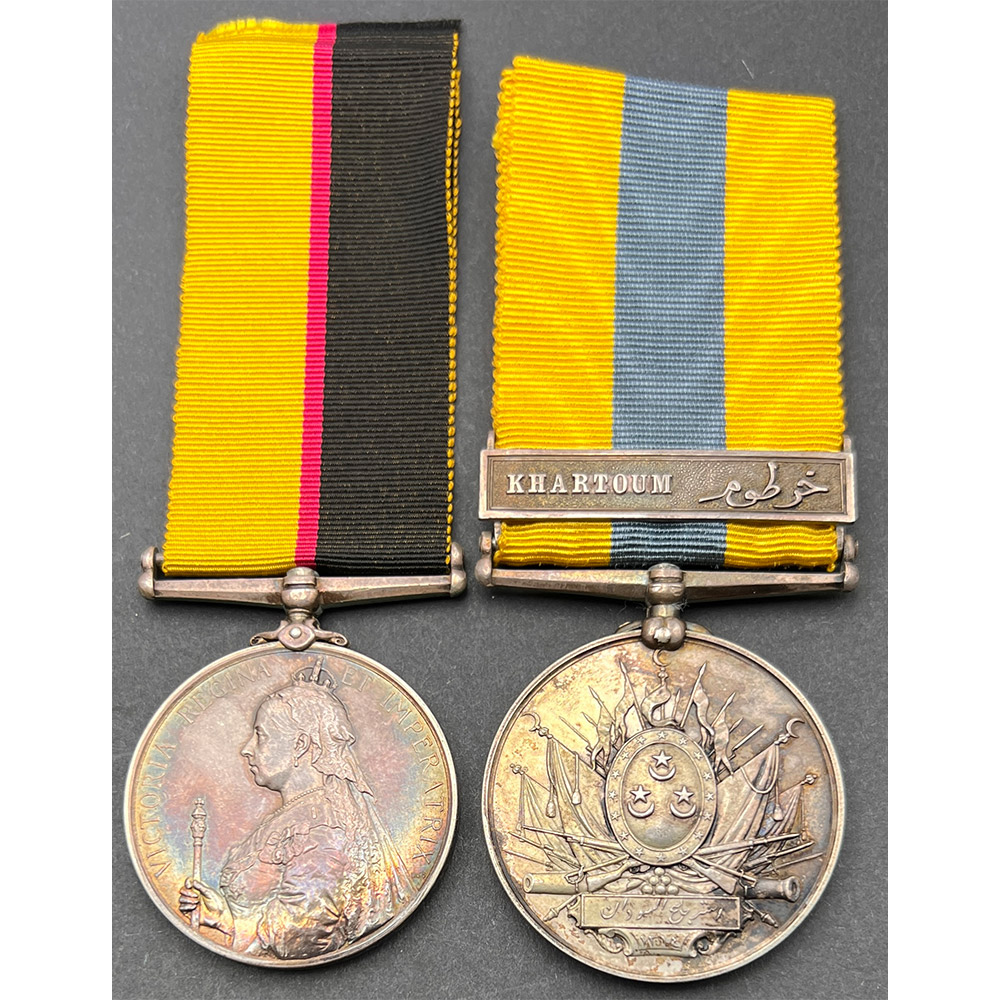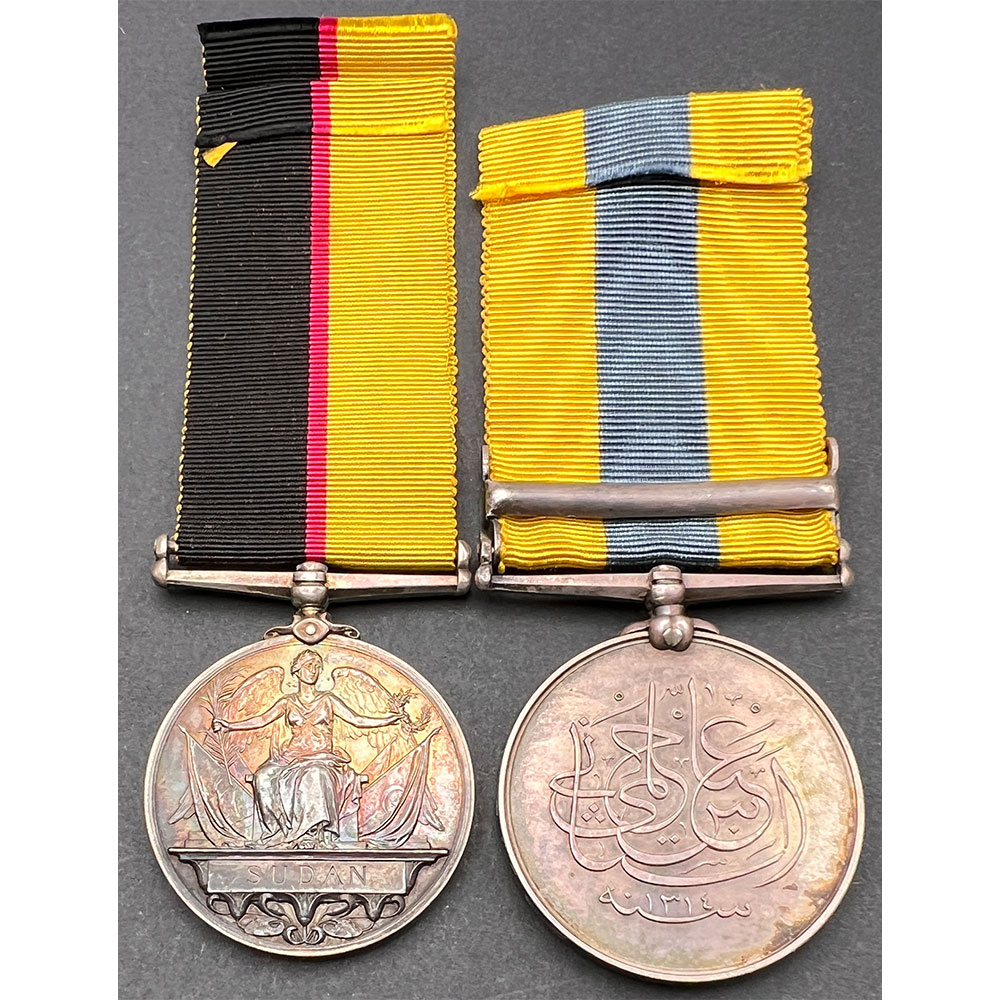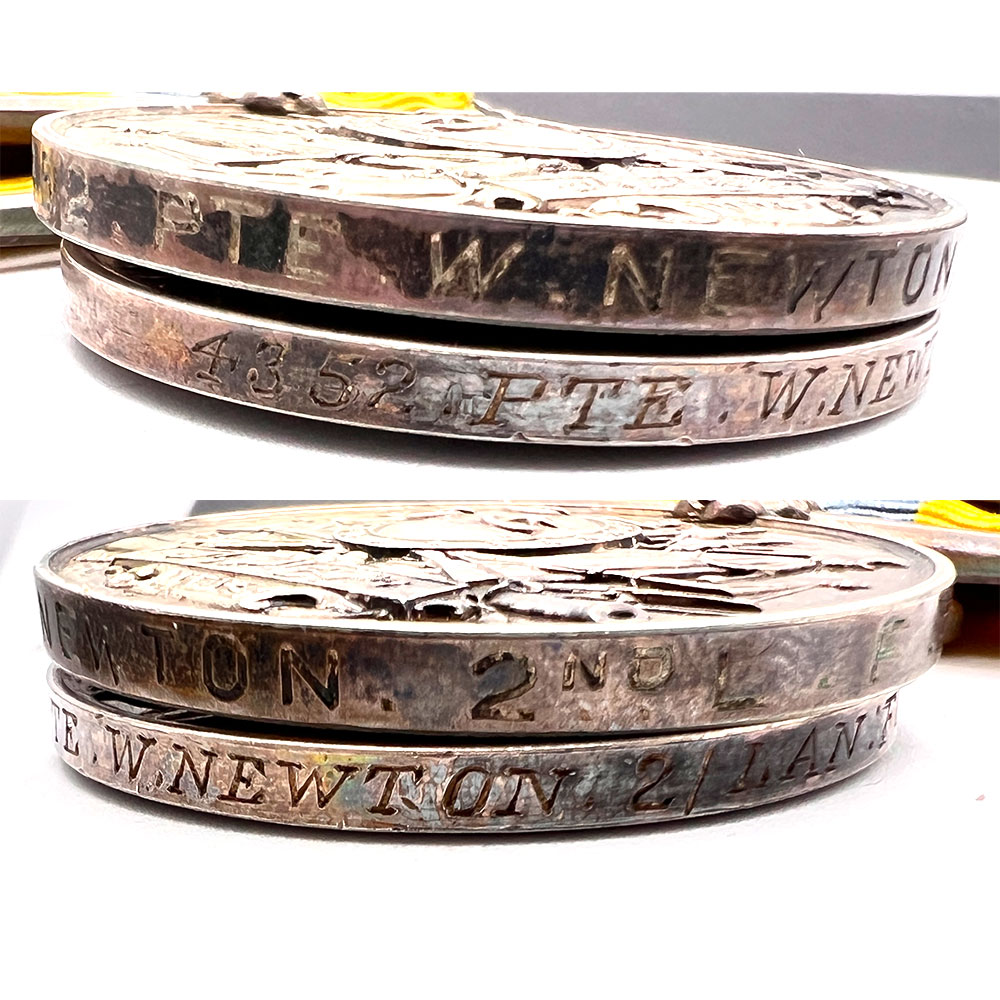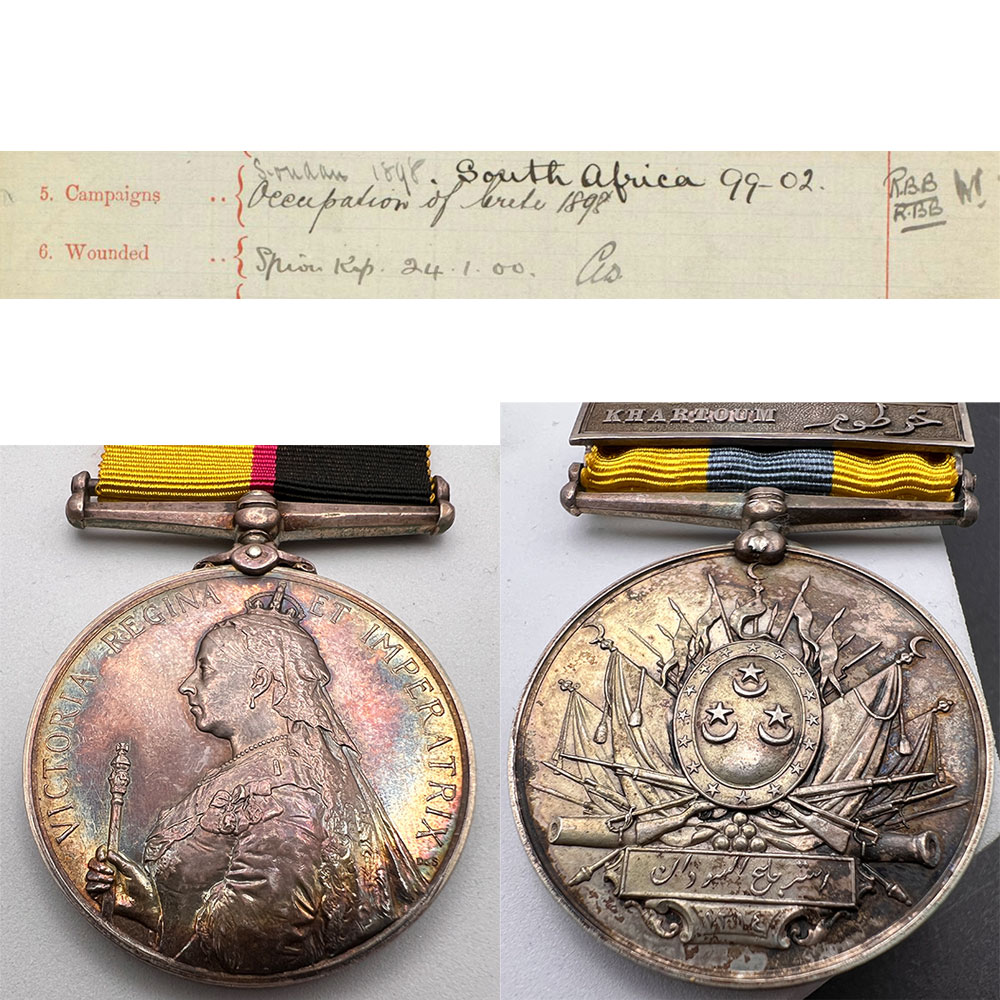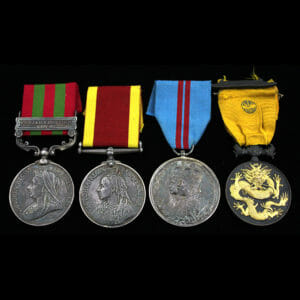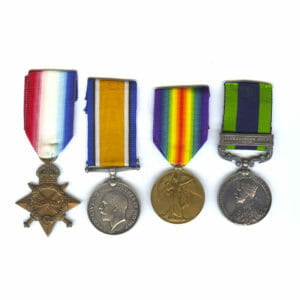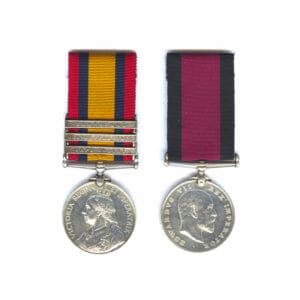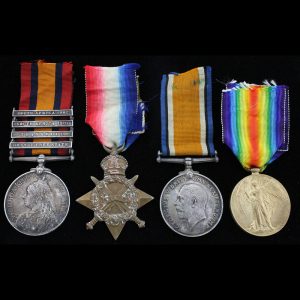Description
Queen’s Sudan, Khedive’s Sudan, bar Khartoum, 4352 Private William Newton, 2nd Battalion Lancashire Fusiliers, who was wounded in action at Spion Kop 24th Jan 1900.
Sudan Medal officially engraved: “4352. Pte. W. Newton. 2/Lan: Fus:”
Khedives engraved in usual regimental style: “4352 PTE. W. NEWTON. 2nd L.F.”
Excellent toned condition,
With copy service papers.
During the Boer War, Private Newton was one of the famous Lancs Fusiliers who fought in the Battle of Spion Kop on 24th January 1900, he was fortunate to escape with his life, having been wounded in action on that day.
His wound section of his papers reads: “Spion Kop 24.1.00”
For his Boer War services, he is also entitled to the QSA and KSA Medal, earning the bars for Orange Free State, Transvaal, Tugela Heights, Relief of Ladysmith, Laing’s Nek.
Mr William Newton, was a Manchester man, born there in 1874 in the Parish of St Michaels, which appears to have been in Ancoats.
His father Lived in Chorlton on Medlock, Manchester.
He attested for service on 8th December 1892 with the Lancashire Fusiliers, as an already serving member of the 3rd Militia Battalion of the Fusiliers.
Upon joining it was noted he was “Deficient of half of the second finger of his left hand.”
It took the young lad less than a year to receive his first harsh lesson.
On 30th September 1893, he was found to be absent and had gone missing.
On 2nd October 1893, he was locked up for 11 days.
On 13th October 1893, he was tried by District Court Martial for Theft, Deserts and Loss of his clothing and was imprisoned for 112 days of Hard Labour and Stoppages.
There was no Christmas Dinner for him, as he spent the next 112 days in Prison from 13th October 1893 until 2nd February 1893.
He would receive another period of imprisonment on 5th December 1898.
Along with one more being “awarded 14 days of Imprisonment and Hard Labour” on 17th May 1901 whilst on service in the Boer War.
His service from his papers:
Campaigns: “Soudan 1898, South Africa 99-02, Occupation of Crete 1898.”
Wounded: “Spion Kop 24.1.00”
Home, 8th December – 12th October 1893, this crossed through “All former service forfeited on conviction of desertion” but then reads “Restored”
Home, 13th October 1893 – 26th Feb 1894
East India, 27th Feb 1894 – 10th Jan 1898
Egypt, 11th Jan 1898 – 8th October 1898
Crete, 9th Oct 1898 – 3rd Dec 1898
Malta, 4th Dec 1898 – 26th Oct 1899
Home, 27th Oct 1899 – 1st December 1899
South Africa, 2nd December 1899 – 5th Sept 1902
Home, 6th Sept 1902 – 9th December 1904.
He was discharged on 7th December 1904, but re-attested for the Army Reserve from 18th January 1905 until 17th January 1909.
Unusually with the outbreak of World War 1, a now 40 year old wounded veteran, he would go on to serve under an Alias with his old regiment under the assumed name of William Taylor.
He first signed up with the 1st Bn Lancs Fusiliers under the name William Taylor as a Private with Number 5178.
It is assumed that if he revealed he was now 40 years old and they checked his papers and saw his wound, he might have been rejected, or possibly he had already been rejected as such.
He landed in the Egyptian Theatre of War on 29th June 1915.
Later on into the war he transferred over the Army Service Corps on 2nd March 1917.
His WW1 pension card uncovers that former No 4352 William Newton of the Lancs Fus, was the same man as M/280448 William Taylor of the Army Service Corps.
His card is stamped “Dead” and it appears he died circa 1924.
His medal index card suggests that the 1914-15 Star was named “Newton” and the WW1 Pair “Taylor”, which would be unusual.
